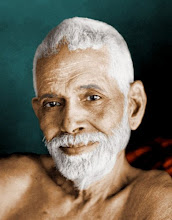He that is slow to anger is better than the mighty; and he that ruleth his spirit than he that taketh a city. – Proverbs
In the interest of good health, in the interest of a long life, in the interest of loving relationships, it is essential to learn how to deal with our anger creatively and constructively. If we do not, in time it will no longer be isolated outbursts of anger; we will become the victims of an unending stream of rage, seething just below the surface of life, with which no human being can cope.
Through meditation and the mantram every one of us can learn to reduce the speed of our thinking, and install a reliable speedometer in our mind. Then, whenever the speed of thinking goes over, say, fifty-five, one of those recorded voices will automatically whisper, “Be careful. You may not be able to keep your car on the road.”
Positive thoughts travel slowly, leisurely. The slow mind is clear, kind, and efficient; in the beautiful phrase of the Bible, it is “slow to wrath.” Patience means thoughts puttering along like Sunday drivers, taking the trouble to notice the needs of people around.
--Eknath Easwaran
I love Easwaran's metaphor of mindfulness as a car that obeys a reasonable speed limit. It makes sense that a mind that moves in a more focused and unhurried manner will afford a clearer view of the surroundings and be less likely to "run off the road."
Yet, I've often wondered how to reconcile this kind of slow mind with a mind displaying the quickness that is characteristic of intelligence and adaptability to rapidly changing circumstances. Sometimes my mind feels sluggish, bored, and cooly indifferent alternating with the burning frustration of its episodic obtuseness. Other times, I feel swept along by the joyful exhilaration of a mind that races forward like a frisky child to understand things it normally doesn't and see connections it normally can't. (I sound positively bipolar when I say this, don't I? But I don't believe that I am. At least not clinically so.)
And then there are those special times when my mind seems to transcend dichtomies of fast and slow. It sees and understands and delights, but it does not race. It produces uncommonly effective speech and actions without even trying. It is calm and clear even in the midst of chaos and confusion. It loves everyone, forgives their transgressions, but also speaks hard truths to those who need to hear them, and it does all these things spontaneously and without reservation or regret. I believe that this is the state to which Easwaran refers. A state of constant clarity, unshakable equinimity, and surpassing joy.
I don't care what name one uses to label it or metaphor one employs to describe it. It is a taste of the "promised land" that I hope to inhabit for as much of the rest of my life as I can.
Sola Meta-scripture?
-
"There is," writes the Thomist philosopher Walter Farrell,
an infinite chasm between the unspeakable things that are too base, too
irrational for words ...
1 hour ago



No comments:
Post a Comment